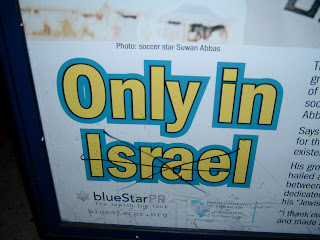Jacoby then went into why such a bias exists. Logically, it doesn't make sense that such a tiny region with such a relatively small conflict (compared to ones in Darfur and Congo with MUCH more violence) gets so much coverage, and negative coverage at that. The reasons are as follows: First, access to Israel is much easier for international journalists than it is to many other places. Tel Aviv is very hospital to reporters and there is a thriving free press in Israel. Reporters are much more likely to spend months posted in a beautiful hotel by the beach in Tel Aviv than they are to stay in Sudan or Congo. The next reason is fear. In the Islamic fundamentalist countries around Israel, journalists are threatened and intimidated by the government for writing anything critical. In Israel, it is more than OK to criticize the government -- Israelis do it more than enough! Another reason is the media's general leaning towards the left side of the political spectrum. While the Left and Right in this country are supportive of Israel, it is a trend of late for the Left to be more critical of Israel. Because most major media outlets in this country are left-leaning, this tendency to be critical of Israel is apparent. Lastly, there is often reporting based on nonfactual information. When a reporter goes to the Middle East and doesn't know the local language, they depend on translators and guides to give them the story of what's going on. The translators/guides in Palestinian territories often work for the government and take journalists to staged scenes of children throwing rocks that are not genuine at all. Reporters don't have any other options so they run with the fake story and photographs and people in the rest of the world take them to be true. Following his talk, Jacoby took questions from people in the audience, some journalists themselves and some just interested students.
Overall it was a great evening and a wonderful way to end the semester. Thanks to all of you who showed up! We look forward to seeing you for more events after the break.












































